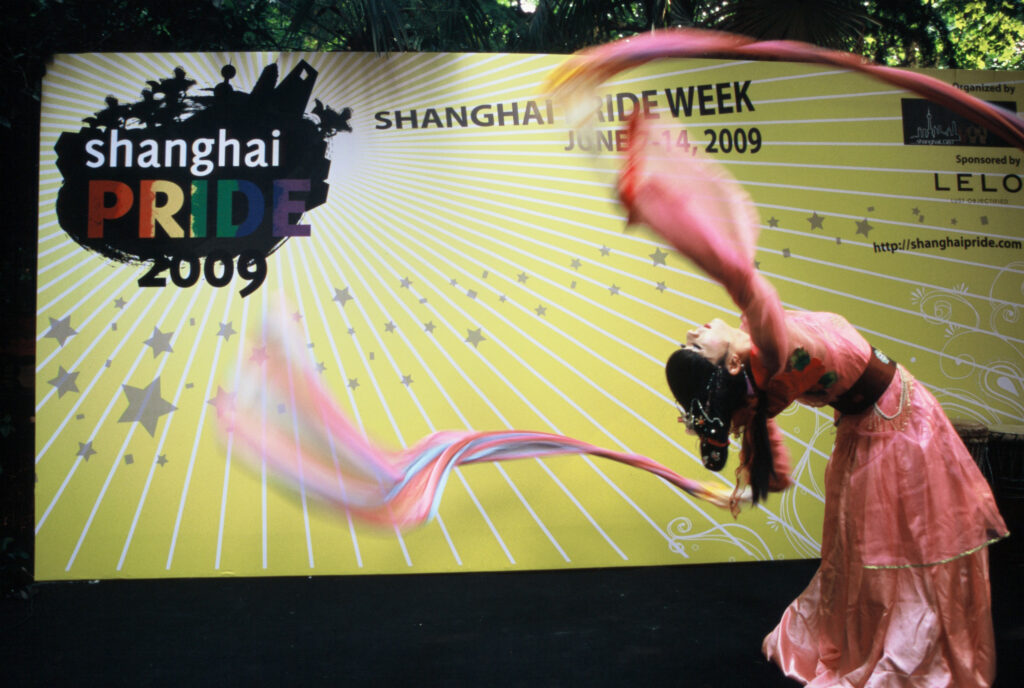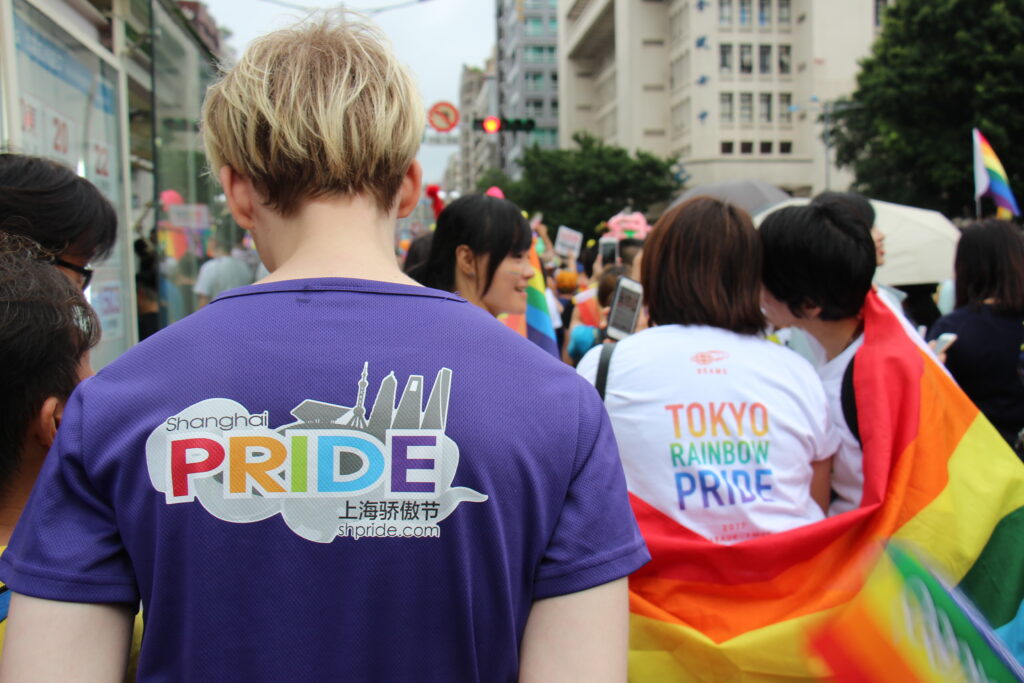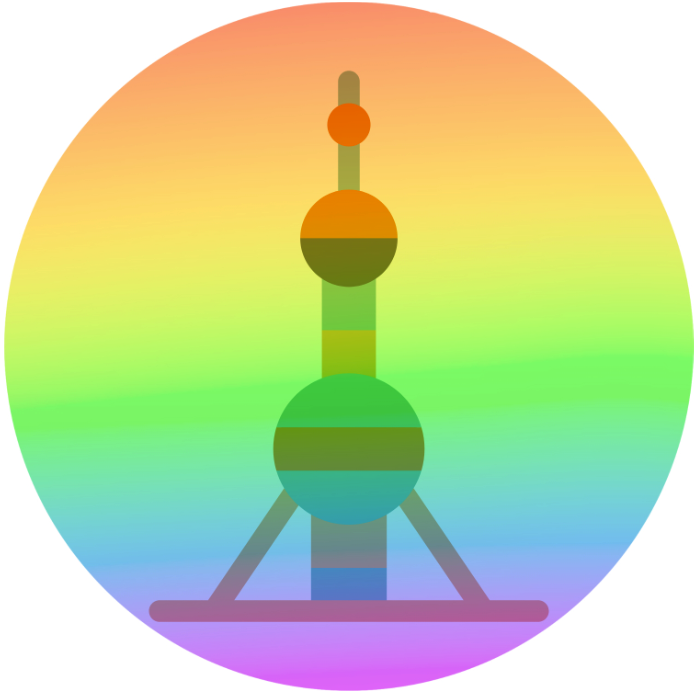In the complex tapestry of China’s socio-political landscape, Shanghai Pride emerged in 2009 as a crucial beacon of LGBTQ+ visibility and advocacy. From small volunteer gatherings to an extensive festival spanning multiple weeks, it became China’s longest-running annual Pride celebration. However, shortly after the completion of Shanghai Pride 2020’s diverse activities — including film festivals, queer art exhibitions, pride job fairs, discussion forums, and rainbow bike races — the festival made an abrupt announcement to cancel all future events without explanation.
This month would have marked the 15th anniversary of Shanghai Pride if not for the increasing government restrictions on public advocacy of LGBTQ+ rights in China. Against censorship and scrutiny, the festival’s 11-year journey remains a symbol of visibility and solidarity, inspiring China’s LGBTQ+ communities to proudly express and embrace their true self in a society where voices are often silenced.
 Contextual Background
Contextual Background
China decriminalized homosexuality in 1997 and removed it from its official list of mental disorders in 2001. However, subsequent movements aimed at advancing LGBTQ+ rights in China were met with continuing suppression. In today’s China, same-sex marriage remains illegal, conversion therapy has yet to be banned, and there are no anti-discrimination provisions for sexual orientation or gender identity in Chinese labor law.
It is generally believed in China that LGBTQ+ people are free to explore their sexual orientations and identities in private groups instead of publicly demanding more rights. According to a 2018 UNDP study, LGBTQ individuals in China continue to have remarkably low visibility in their everyday lives. 5% of them openly came out at schools, workplaces, and religious communities, and less than 15% came out to families.
In response to these limitations, grassroots movements, such as Shanghai Pride, have emerged as subtle means of navigating censorship while fostering a sense of community for LGBTQ+ individuals within their constrained spaces. Most major cities have a dynamic social scene for the community, even if it is primarily underground. For example, to avoid attention, Shanghai Pride was initially positioned as a party for expats living in Shanghai, notably being the only Pride Parade without an actual public outdoor parade. However, the already limited safe spaces are becoming more challenging to find.
The surge in censorship and constraints on LGBTQ activism in China has been attributed to various factors. Some scholars suggest that the Chinese Communist Party’s crackdown is driven by efforts to counter declining birth rates, promoting traditional family values to ensure social stability and economic growth. Others suggest that the Cultural Revolution shaped Chinese President Xi’s political ideologies during Mao’s era when Western and “non-socialist” concepts, including homosexuality, were purged. Additionally, there is a perception that minority-led mass mobilization disrupts social stability, leading to the suppression of politically charged demonstrations by groups such as LGBTQ activists. Government advisories caution against “vulnerable groups,” suggesting foreign entities could exploit them to infiltrate China. As a result, activists and advocates are faced with increasing challenges.
 The Story of Shanghai Pride
The Story of Shanghai Pride
The first edition of Shanghai Pride took place from June 7 to 16, 2009, with an estimated attendance of 3000. The initial development was led by two American ex-pats whose status as outsiders created a relative advantage against government interference. Meanwhile, China Daily, the official English-language newspaper of the government, surprisingly featured a story about Shanghai Pride on its front page, hailing the event as a positive indicator of China’s impressive social reform progress. However, this recognition did not extend to the Chinese version of the press and was entirely omitted by mainstream media of the Chinese language. One advocate noted, “Sometimes I feel like we are playing a complicated game with the government. No one knows where the line is, but we just keep pushing.”
Despite many last-minute restrictions, such as the cancellation of a live play and the removal of all banners or posters in Mandarin, the festival took place and was an immediate success within the local LGBTQ community, particularly among those under 30 and expats from Western countries residing in Shanghai. From then on, Shanghai Pride continued to grow, expanding its audience, themes, and activities. Increasingly, participants and volunteers were Chinese, more promotional materials were written in Mandarin, and the festival diversified its topics, placing more emphasis on transgender rights. Additionally, events increasingly involved collaboration and sponsorship from various organizations, including foreign consulates from over ten countries, a global network of NGOs, other LGBTQ+ organizations in China, local businesses, and dozens of famous global corporations.
In June 2020, Shanghai Pride hosted one of the only offline Pride celebrations since the pandemic began. The month-long schedule included outdoor activities such as the Rainbow Bike Ride and Rainbow Run, an 11-day queer film festival, and a month-long art exhibition. This made the cancellation announcement the following year even more shocking to the community. “Pride has grown to a scale that was probably too visible, likely making an impact, and thus catching too much (unwanted) attention,” the announcement stated.
Looking Ahead
Reflecting on Shanghai Pride, its impact endures beyond its annual festivities. Despite the abrupt end, the festival’s 11-year journey symbolizes resilience and resistance within China’s LGBTQ+ community. Many volunteers who worked for Shanghai Pride have continued their efforts, organizing similar events under different names with more discretion. While content related to these events is still updated on the festival’s official WeChat account and website, activity has visibly decreased, and numerous last-minute cancellations have been reported.
On International Day Against Homophobia, Biphobia, and Transphobia (IDAHOT) in 2022, two Tsinghua University students were disciplined for distributing just ten rainbow flags on campus. Despite multiple appeals and negative feedback, their lawsuit against the education ministry was not accepted, with the judge citing regulations prohibiting lawsuits that threaten national security or unity. In 2023, rainbow flags began to be banned at concerts. On June 15, 2024, Shanghai’s longest-running lesbian bar, Roxie, abruptly announced its closure due to forces beyond their control. With tightening control each year, the only public spaces where showing a rainbow flag is allowed during Pride Month in China are at foreign consulates.
The story of Shanghai Pride, marked by adaptation and resilience, is worth remembering. As the struggle for LGBTQ+ rights continues, its legacy stands as a testament to the enduring quest for equality and acceptance, guiding future efforts in China’s shrinking space of LGBTQ+ communities.

